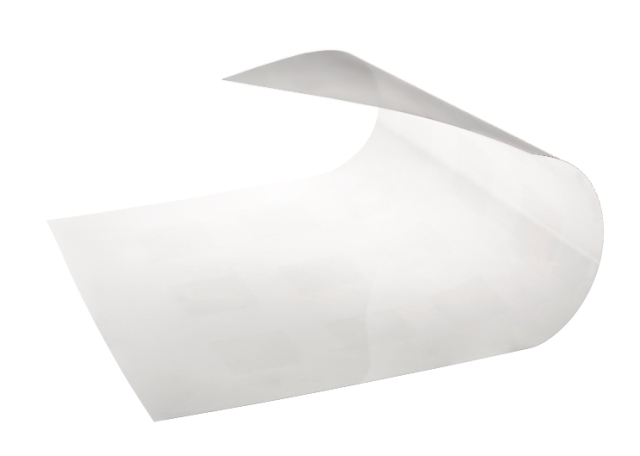Canatu, a manufacturer of next generation transparent conductive films and touch sensors, announces a new generation of high optical transmittance CNB™ (Carbon NanoBud®) transparent conductive films at Printed Electronics Europe in Berlin on April 28th, 2015.
Canatu’s Generation 6 CNB™ Film boasts significantly improved light transmittance. With zero haze, zero reflectance and high transmittance, CNB films have unrivalled optical performance and provide for high contrast displays with great outdoor readability.

“High grade optics is an innate property of CNB Films. Gen 6 brings the optics to perfection, expanding the scope where our films can be applied. We see ourselves bridging technology and design as our films enable almost complete design freedom. No other product on the market has the combined properties of CNB Films: extreme flexibility, excellent conductivity and high quality optical performance”, explains Dr. Erkki Soininen, VP Marketing and Sales at Canatu.
Canatu’s Generation 6 CNB Films have 95% optical transmittance at a sheet resistivity of 100 ohms/square and 97% at 150 ohms/square. Earlier this year, Canatu introduced a super-thin, flexible 23 um CNB Flex Film, with a world’s lowest 1% change in sheet resistivity after 150 000 bends at 2 mm radius.
With improved light transmittance vs resistivity characteristics, CNB™ Films can now be used in a wide range of touch applications, including larger displays and single-layer touch devices with totally invisible patterns. Combining the award-winning optics with extreme flexibility and thinness, Canatu’s films are especially suited for wearable and flexible devices such as next-generation foldable smart phones and tablets.
Canatu’s transparent conductive film portfolio consists of CNB™ Hi-Contrast Film optimized for flat projected capacitive touch devices, CNB™ Flex Film optimized for wearable, flexible and foldable touch-enabled electronics devices and CNB™ In-Mold Film optimized for formable 3D capacitive touch surfaces.
Canatu made significant investments in its production during 2014. Canatu is now entering mass manufacturing with several design wins to be announced later this year for consumer electronics, wearables, household appliances, and automotive use.
For additional information, please contact:
Erkki Soininen, Vice President Marketing and Sales, Canatu Oy, tel. +358-40-574-1504, [email protected]